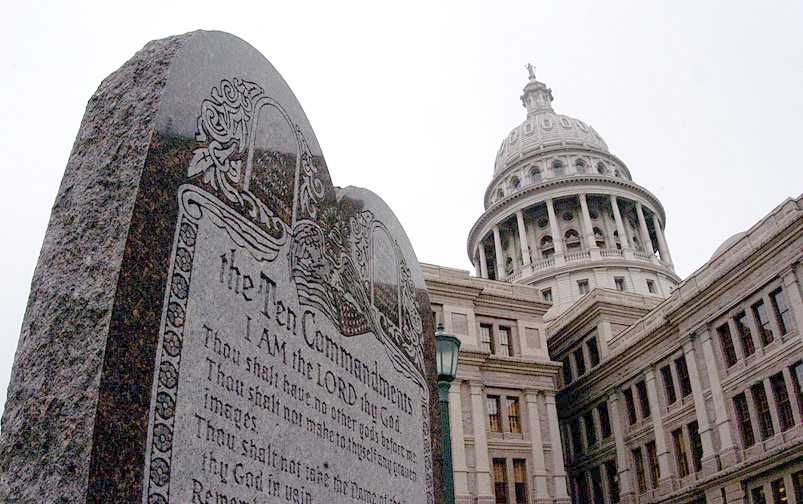

Texas has passed a controversial new law requiring all public school classrooms to display the Ten Commandments, intensifying a nationwide debate over religious freedom, education, and the Constitution.
On June 18, 2025, Texas Governor Greg Abbott signed Senate Bill 1515 into law. The law requires every public elementary, middle, and high school classroom to visibly post a copy of the Ten Commandments starting this fall.
“The Ten Commandments are a cornerstone of American legal tradition,” Abbott said during the signing ceremony, according to The Texas Tribune. “Restoring them in our schools is about reminding students of the moral foundation this country was built on.”
The law states that the commandments must be displayed in a “conspicuous place” in a size and font that is “legible to a person with average vision from anywhere in the classroom.” Schools will not be required to purchase the displays with public funds; instead, they are expected to accept privately donated posters or framed copies.
Supporters say it’s about tradition, not religion
Supporters of the bill argue that the Ten Commandments have historical importance, not just religious meaning. “This isn’t about preaching or converting,” said State Senator Phil King, who authored the bill. “The Ten Commandments are part of our cultural and legal history, just like the Constitution or the Declaration of Independence.”
In interviews with Fox News, parents and religious leaders in support of the law said it promotes basic moral values such as honesty, respect for others, and responsibility, lessons they believe students need now more than ever.
“It’s about time we brought back some old-fashioned values,” said Reverend Carl Davis, a pastor from Austin. “Kids today are growing up in a chaotic world. This reminds them of right and wrong.”
Opponents say it violates religious freedom
However, critics argue that the law is a clear violation of the First Amendment’s Establishment Clause, which prohibits government endorsement of religion. According to a statement from the American Civil Liberties Union (ACLU), issued on June 19, “This law forces a religious text into public classrooms and excludes students who do not share the same beliefs.”
“This is not just about history or tradition,” said David Cole, ACLU Legal Director, in an interview with NPR. “It’s about the state choosing to elevate one religion above others — and that’s unconstitutional.”
The Freedom From Religion Foundation (FFRF), along with the ACLU, has announced plans to file a lawsuit against the state. They cite the 1980 Supreme Court case Stone v. Graham, in which the court struck down a similar law in Kentucky, ruling that displaying the Ten Commandments in classrooms had a “plainly religious purpose.”
Teachers and students caught in the middle
Educators across Texas have expressed concerns about how the law will impact classroom dynamics. Some teachers fear it could alienate students from different religious or non-religious backgrounds.
“Public schools should be welcoming to everyone, no matter what they believe,” said Alejandra Ruiz, a public high school teacher in Dallas, during a live panel on KHOU 11 News. “I’m not against teaching values, but I don’t think we should use religious texts to do it — especially when not all students share that faith.”
Some students are also speaking out. “I’m Jewish, and while I’m familiar with the Ten Commandments, I don’t want to feel like I’m being preached to in math class,” said Maya Silverman, a junior at a Houston high school.
Legal showdown ahead
Legal experts expect the law to face challenges in court as early as this summer. According to The Washington Post, constitutional scholars say the case could end up before the U.S. Supreme Court, which now has a conservative majority that may be more open to religious displays in public spaces.
Until then, school districts are left figuring out how to follow the law while preparing for a legal battle that could reshape how religion is handled in classrooms across the country.
As Texas becomes the first state in decades to mandate religious texts in every classroom, the country watches closely. Whether seen as a return to moral tradition or a step backward for religious freedom, one thing is clear: the line between faith and public education just got blurrier.
<Student Reporter Chloe Im> La Canada High School, cim29@mylcusd.net







